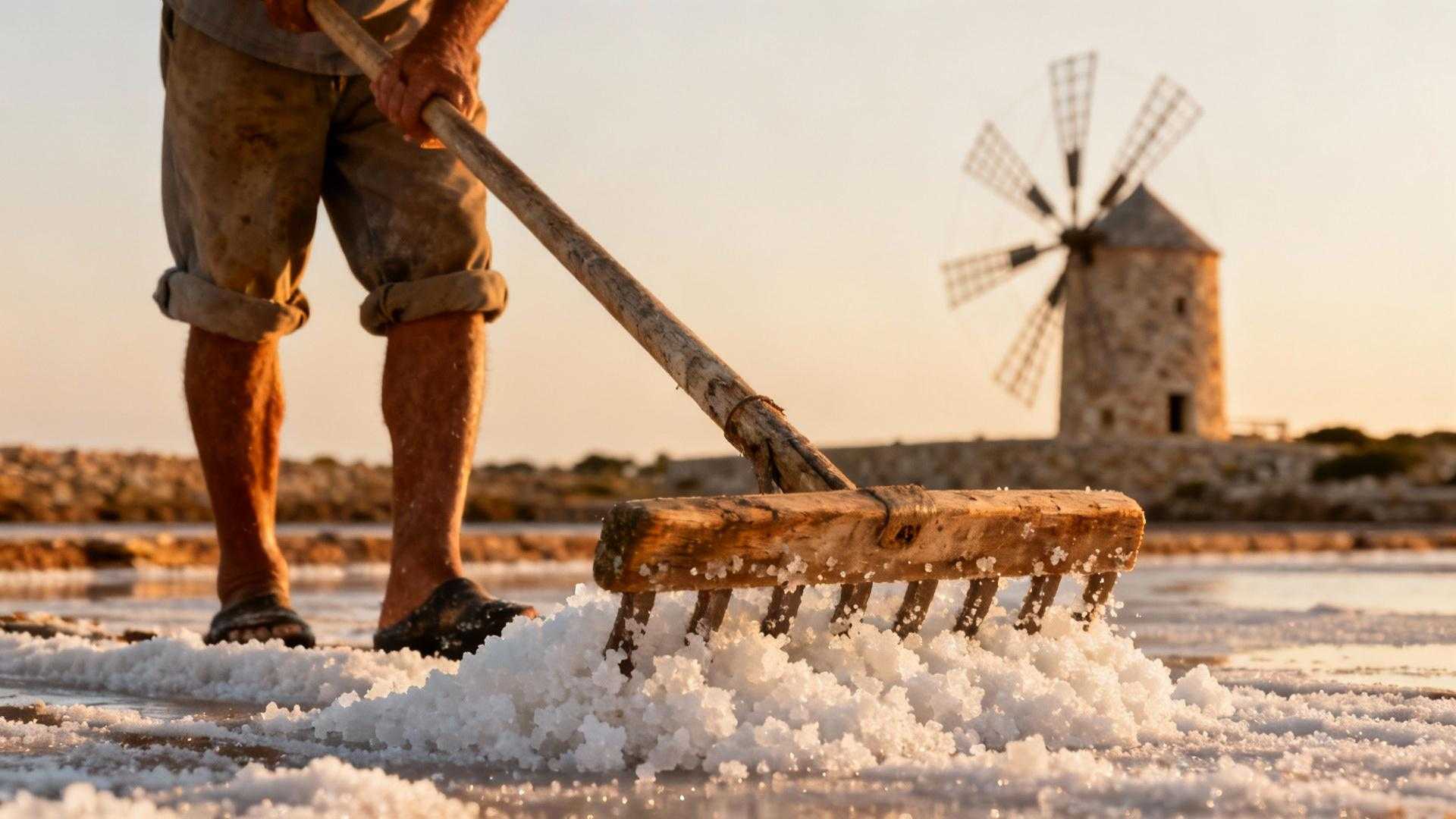Hidden within Menorca’s northern coastline, the Reserva la Concepció salt flats represent something extraordinary that mass tourism has completely missed. This is the only active traditional salt mine still operating in the entire Balearic Islands, where 172-year-old artisanal techniques produce Mediterranean salt that you simply cannot find anywhere else.
While millions of travelers flock to Ibiza’s commercialized Ses Salines or Mallorca’s crowded beaches, fewer than 2,000 visitors annually discover this 53-acre sanctuary where salt masters still harvest by hand using methods unchanged since 1853. The exclusivity isn’t accidental—it’s carefully protected.
What makes this place truly unique isn’t just the salt production, but the complete cultural ecosystem that survives here. This is where Mediterranean craftsmanship meets conservation, where traditional knowledge passes between generations, and where visitors experience something that has vanished everywhere else in Spain.
The exclusive artisanal process that creates Mediterranean’s rarest salt
Hand-harvested flor de sal that forms only here
The Flor de Sal produced at Reserva la Concepció contains only 97% sodium chloride, leaving 3% for essential minerals including calcium, magnesium, and potassium that industrial operations strip away. Salt masters harvest this delicate crystallization exclusively during May through September, requiring specialized skills passed down through five generations of the same families.
Traditional techniques that disappeared elsewhere
Unlike mechanized salt operations, every crystal here is manually collected using wooden rakes and traditional tools. The salt workers follow tidal patterns and weather conditions exactly as their predecessors did in 1854, creating four distinct varieties: natural, Menorcan herbs, spicy, and wood-smoked that command premium prices in over 30 countries worldwide.
The conservation framework that protects this cultural treasure
Multiple protection designations ensuring authenticity
The site operates under Place of Community Interest, Special Protection Area for Birds, and Natural Area of Special Interest status. Since 2020, a Custòdia Agrària land stewardship agreement ensures that tourism remains sustainable while preserving the natural, cultural, and ethnological values that make this place irreplaceable.
Wildlife habitat that requires careful balance
The salt flats serve as crucial habitat for black-winged stilts and other specialized wetland species. Harvesting schedules coordinate with nesting patterns, demonstrating how traditional industries can coexist with conservation goals while providing authentic cultural experiences that respect both heritage and nature.
The exclusive access that few travelers experience
Guided tours with local salt masters
Access requires advance booking with local cooperatives who limit group sizes to protect the delicate ecosystem. These aren’t tourist performances—they’re authentic working sessions where visitors observe active salt production while learning techniques that UNESCO recognizes as intangible cultural heritage.
Tasting experiences unavailable anywhere else
The on-site tastings combine fresh-harvested salt with local olive oil and traditional bread, creating flavor profiles that showcase why this artisanal product commands premium pricing. Each package includes harvest date, weather conditions, and individual salt worker identification—authenticity that industrial operations cannot replicate.
The cultural significance that tourism threatens
Heritage industry revival success story
After 37 years of abandonment, the 2021 rehabilitation transformed derelict infrastructure into a thriving artisanal enterprise under the “Sal de Menorca” brand. This revival preserves centuries-old techniques while meeting contemporary sustainability standards, proving that heritage industries can succeed without compromising authenticity.
Traditional knowledge at risk of disappearing
The salt masters represent the last generation with direct knowledge of traditional Mediterranean salt production. Their techniques, developed over 170+ years of continuous operation until 1984, embody cultural knowledge that exists nowhere else in the Balearic Islands and risks disappearing without careful protection.
Visiting Reserva la Concepció isn’t just about witnessing salt production—it’s about experiencing the last authentic example of Mediterranean artisanal heritage that mass tourism hasn’t discovered yet. The exclusivity comes with responsibility: respecting the cultural significance, supporting sustainable tourism practices, and understanding that some treasures remain precious precisely because they’re protected.
For travelers seeking experiences that connect them to authentic Mediterranean culture, this represents something increasingly rare: a place where traditional craftsmanship survives not as tourist theater, but as living heritage. Book through local cooperatives, respect the guidelines, and prepare to taste salt that tells the story of Menorca’s cultural soul—while it still remains exclusively yours to discover. Here’s more authentic Mediterranean heritage: This tiny Croatian island has 300,000 olive trees but only 476 residents, This hidden Basque village keeps 700-year-old traditions alive, and This tiny Finnish village has 35 glass igloos under Northern Lights.
